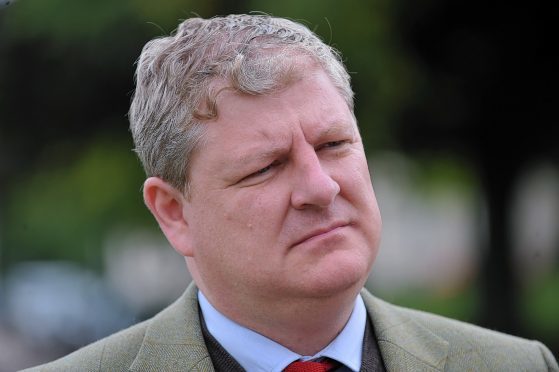Lindsay Watling, Westminster Correspondent
David Cameron has come under pressure from the SNP over claims the Conservative campaign at last year’s general election breached spending rules.
Angus Robertson, the party’s Westminster leader, called out the prime minister for being prepared to “lecture” other countries about corruption when multiple police forces in the UK have launched investigations into Tory MPs.
His comments came during Prime Minister’s Questions in the House of Commons yesterday.
Mr Cameron, who was filmed on Tuesday telling the Queen that Nigeria and Afghanistan are “possibly the two most corrupt countries in the world”, sought to head off criticism of the gaffe early on during the weekly exchange.
But the Moray MP picked up on the issue, highlighting appeals from Nigerian campaigners who say their efforts to clamp down on corruption are undermined by the investment of “ill-gotten gains” in places like the UK.
Mr Cameron said the whole point of hosting today’s anti-corruption summit in London was to acknowledge that action is required of developed countries too.
He also pointed to measures to ensure companies that own UK property have to declare who the beneficial owner is.
Mr Robertson said it would be helpful for that list to publicly available and not just accessible by the police.
He went on: “Seeing as how you are prepared to lecture other countries on corruption and probity, will you explain why seven police forces in the UK have launched criminal investigations into Conservative MPs for potential electoral fraud?”
The Conservatives are facing claims that the costs of bussing activists into 29 marginal seats should have been recorded under individual candidates’ limits, rather than as part of the national campaign last spring.
Mr Cameron insisted no-one was lecturing anybody, but he added: “It is right for Britain to take this lead, not least because we meet our 0.7% contribution on aid. I think we are entitled to raise this incredibly important issue.”
And he hailed the independence of the police and Electoral Commission as the “hallmark of an incorrupt country”.
The PM also came under pressure over tax secrecy in Britain’s overseas territories and Crown dependencies, but he urged critics to be “fair” to the territories, which he said had shown greater readiness to introduce transparency than many developed countries, including the US state of Delaware.
At the start of their exchange Mr Robertson asked the PM to recognise the success of Nicola Sturgeon at last week’s Holyrood election, which he did.
Mr Cameron added: “I’m sure you would want to congratulate Ruth Davidson on her stunning performance.”
